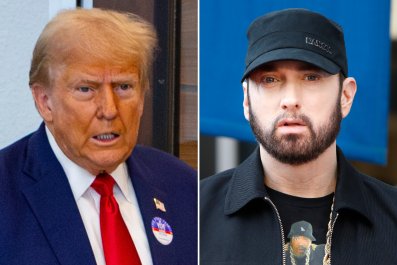Facebook is the most popular social network globally, according to Statista, with close to 3.1 billion users worldwide as of July.
But the platform, owned by Meta, has been banned in a number of countries across the globe and is restricted or monitored by a number of others.
In 2024, the countries in which Facebook is banned include China, North Korea, and Iran, according to the campaigning organization Index on Censorship. Uganda, Russia, and Turkmenistan have also banned Facebook.
The map below shows which countries Facebook is banned.
Facebook was banned in China in 2009 — although this does not include Hong Kong or Macau — as part of a government crackdown against activists in Xinjiang province, Time reported in 2022. Iran banned Facebook in 2009 as well during mass protests, according to the outlet, while North Korea banned Facebook in 2016.
Russia banned Facebook more recently in 2022, stating Meta had broken the country's rules by limiting online access to state-backed media. The platform has been banned in Uganda since 2021, two days before the presidential election, Quartz reported at the time.
Turkmenistan is thought to have blocked Facebook since 2021. Between 2021 and 2022, 15.5 million domains in Turkmenistan were tested for censorship by a research team and it was found that over 122,000 domains were blocked, Global Voices reported. Turkmenistan is also reported to have the slowest internet speed in the world, according to the outlet.
Tanya Goodin, tech ethicist and founder and CEO of the advisory consultancy EthicAI, told Newsweek, "Governments may decide to ban social media platforms like Facebook due to concerns over national security, the spread of misinformation, or to suppress dissent, particularly around election times or during civil unrest and protests."
"But banning social media platforms raises significant ethical concerns, as it involves balancing considerations of national security with the right to freedom of speech. While governments may justify such bans as necessary they also risk violating international human rights norms, which protect freedom of speech and access to information," she said.
She added that the "repression of critical speech in particular violates article 19 of the Universal Declaration of Human Rights," which grants the right to freedom of opinion and expression, and access to information through any media and regardless of frontiers.
She told Newsweek, "The impact of social media bans can be profound, leading to economic losses, disruptions in communication, and even — one of the things they are actually designed to prevent — increased social unrest. Measures often backfire, as they can incite even more protests and even push users off mainstream networks onto more radical or encrypted platforms."
Periodic bans of Facebook occur in Turkey, Belarus, Myanmar, and Egypt. Periodic bans tend to occur during political unrest or at times of conflict.
In India, the platform is still active however content has been restricted, according to internet culture publication Rest of World. In Saudi Arabia, there are no bans of major platforms, although all are heavily monitored and restricted, according to the nonprofit Freedom House. In Syria, while the platform is still running, there have been bans on certain Facebook groups, according to Middle East Eye. In Cuba, Facebook has been heavily monitored and restricted during periods of protests, according to Al Jazeera. In Pakistan, Facebook use is also restricted, according to The Kashmiriyat.
Despite the platform being under scrutiny in the region, India had the most active monthly Facebook users at 378 million as of April 2024 – more than the U.S. which was second with 193.8 million, according to Statista. Indonesia has 119 million, Brazil has 112.5 million, Mexico has 92.7 million, The Philippines has 87.7 million and Vietnam has 75.3 million, despite the country's periodic bans.
Do you have a story we should be covering? Do you have any questions about this article? Contact LiveNews@newsweek.com.
Disclaimer: The copyright of this article belongs to the original author. Reposting this article is solely for the purpose of information dissemination and does not constitute any investment advice. If there is any infringement, please contact us immediately. We will make corrections or deletions as necessary. Thank you.




